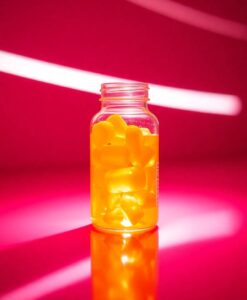For clinicians and people at higher risk, the study shifts the conversation toward prevention as part of routine care rather than waiting until problems appear. Nicotinamide is inexpensive, well studied for other uses, and has a clear biological basis in DNA repair and skin cell health. The finding that transplant recipients experienced less benefit points to important differences in immune context and calls for careful, tailored choices in vulnerable groups.

These results intersect with broader questions about how small, scalable interventions can expand human potential by keeping people healthier and more active for longer. If a simple pill can lower surgical needs, reduce time off work, and ease anxiety about recurrence, the ripple effects matter. Read the full article to see how researchers measured outcomes, which groups gained the most, and what this could mean for prevention strategies in medicine and everyday life.
A massive Veterans Affairs study has confirmed that nicotinamide may offer real protection against skin cancer. Patients who took the vitamin B3 derivative saw notable reductions in new cancer cases—especially squamous cell carcinomas. The findings could shift clinical thinking toward earlier, preventive use of nicotinamide, though it showed less benefit for transplant patients.


